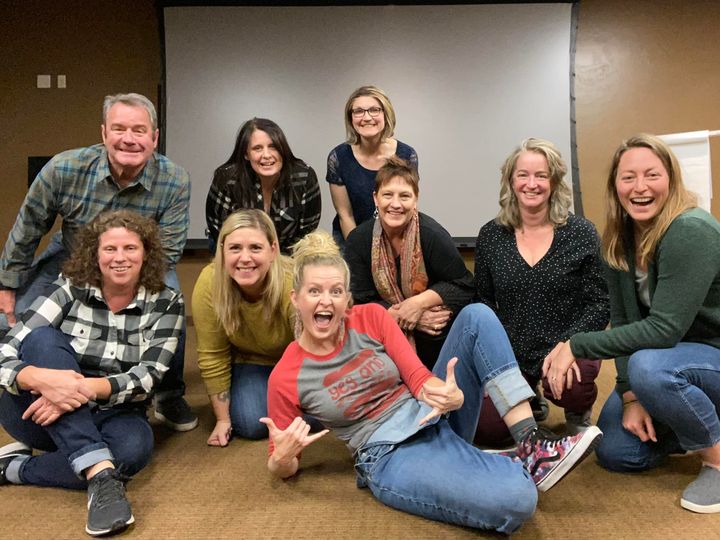The thought of improv methods being used in a professional context intrigues a lot of people. They could be interested in learning how improv can be used to boost professional skills and increase workplace dynamics.
There are some that are skeptical about the idea of improv being used in business and wonder how improvisational theater techniques can translate into practical skills that are relevant to their jobs.
Those individuals who are familiar with improv or have had positive experiences with it may feel excited about the idea of incorporating it into their professional development. They may anticipate a fun and engaging training experience that breaks the monotony of traditional training methods.
One common misunderstanding is that corporate improv training just aims to make participants funny or become comedians. Improv exercises can include humor, but their main objective is to hone useful abilities like creativity, teamwork, adaptability, and communication.
Here, it is our goal to educate people that improv is more than just a tool for training workshops, rather it’s a shift in perspective that will improve the way things get done at work. It will foster innovation, raise spirits, and forge bonds amongst your staff members through enjoyable, immersive activities that unleash your company’s full potential.
Corporate improv training can be tailored to meet specific organizational needs and goals.
Here are some different types of corporate improv training programs:
- Communication and Listening Skills Training – This kind of training focuses on enhancing team members’ communication and active listening skills. Exercises are given to participants to help them communicate more effectively both verbally and nonverbally, to foster empathy, and to better comprehend and interact with others.
- Team Building and collaboration – The value of cooperation, trust, and teamwork is emphasized in improv training for team building. Participants take part in activities that promote cooperation, mutual aid, and the development of a group mindset. The training supports successful collaboration, a positive team dynamic, and the removal of barriers.
- Leadership Development – Improv training for leadership development focuses on enhancing leadership skills, such as adaptability, decision-making, and creativity. Participants engage in exercises that promote quick thinking, confident decision-making, and the ability to inspire and motivate others. The training helps leaders become more agile, innovative, and effective in managing teams.
- Creativity and Innovation – The goal of this kind of improv training is to inspire innovation and originality within the company. Exercises that promote unconventional thinking, coming up with fresh ideas, and taking risks are done by the participants. The instruction aids in breaking through creative obstacles, fostering an innovative mindset, and producing original solutions to issues.
- Customer Service and Sales Training – You can use improv training to improve your sales and customer service abilities. Participants take part in activities that emphasize active listening, empathy, and effective customer communication. The instruction teaches participants how to think quickly, adjust to changing consumer needs, and forge gratifying connections that boost both sales and customer happiness.
- Presentation and Public Speaking Skills – Improv training can boost confidence and improve presentation and public speaking skills. Participants engage in exercises that help them think quickly, respond to unexpected situations, and deliver impromptu speeches. The training helps individuals become more engaging, persuasive, and confident communicators.
- Change Management and Adaptability – The goal of this kind of improv training is to assist teams and individuals in navigating change and uncertainty. Exercises which promote flexibility, resilience, and the capacity to embrace and prosper in a changing environment are done by the participants. The training supports the formation of a growth mindset, improved change management, and increased comfort with ambiguity.
By getting familiar with the improv training programs and highlighting the skills and outcomes they can bring, corporate organizations can encourage their employees to approach improv training with an open mind and embrace its potential to enhance professional growth and performance.
Connect with us today to create a memorable and truly impactful experience for your next team event.




